Photos (L-R): Jeff Hahne/Getty Images, Erika Goldring/Getty Images, Erika Goldring/Getty Images, Jason Kempin/Getty Images for Americana Music Association, Frazer Harrison/Getty Images for Stagecoach
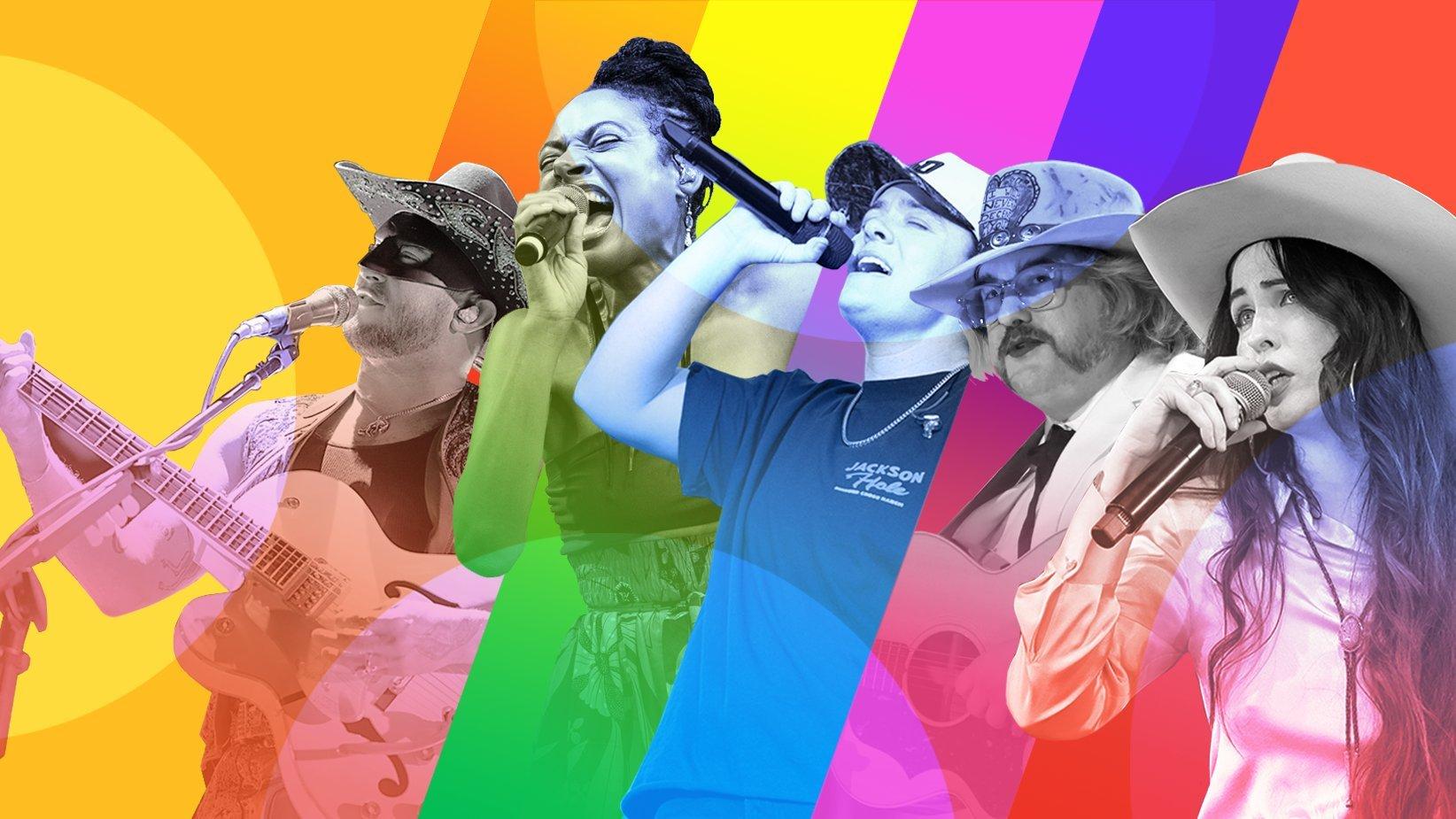
feature
How Queer Country Artists Are Creating Space For Inclusive Stories In The Genre
As country music continues its global explosion, the genre is seeing a growing number of artists in the LGBTQIA+ community — including Adeem the Artist, Lily Rose and Jaime Wyatt — blaze a trail toward acceptance.
When country singer/songwriter Jaime Wyatt announced she was queer with the release of her second album, 2020's Neon Cross, she was convinced doing so would destroy her career. Instead, something shifted — not only was she more free to be herself and to date women openly, but many fans reacted positively, too.
"Several times on the road I've had fans come up to me with their same sex partner, and they're like, 'Hey, we feel safe here. It's so awesome because we both love country music, and we're not out of the closet, and we're not out to our families, but we can be here,'" Wyatt says.
Modern country music is generally perceived as a conservative genre, and deep-rooted cultural and industry biases have long excluded LGBTQIA+ (and BIPOC) artists and stories from the genre. For example, in 2010, when successful mainstream country artist Chely Wright came out, her career stalled and record sales halved. Kacey Musgraves was criticized for lyrics supporting same-sex love in her beloved anthem, "Follow Your Arrow." More recently, even, Wyatt walked out of a recording session after the owner of the space asked if she was singing "'some gay s—.'"
But Wyatt is also one of a growing number of country artists who, in recent years, have blazed a trail through country music and toward acceptance. Among them, Adeem the Artist, Mya Byrne, Brandi Carlile, Brandy Clark, Mary Gauthier, Lizzy No, Orville Peck, Lily Rose, and Allison Russell. Together, they're celebrating queerness alongside their love for the genre, and pushing it into diversity with patience, tenacity, and darn good country music.
"If you listen to popular music, or if you listen to hip-hop music, it feels like there's a broader diversity to a lot of subcultures as far as what you're able to access," nonbinary country singer/songwriter Adeem the Artist says. "Whereas with country music, it's very linear, it's very myopic, and singular in its expression."
By way of broadening country's storytelling, Adeem plays a honky-tonk blend of classic and '90s country music that's sonically aligned with the deep musical traditions in Tennessee, where they now live. Lyrically, though, their propensity for gorgeous, frankly worded songs complicate stereotypical southern narratives in rare and provocative ways. On White Trash Revelry, their 2022 studio album, they grapple with racism, economic entrapment, gun violence, and family heritage. And their latest, Anniversary, released in May, includes songs about mental health, the poignance of parenthood, and the pain and fear of being a queer person in a world that threatens their existence.
Indeed, some of the places in the U.S. with the strongest ties to country music remain the least hospitable to queer people. Just last year, Tennessee, home of Nashville, the country music capital of the world, passed a total of 10 bills aimed at LGBTQIA+ people, while Texas, perhaps country music's second-best known state, passed 20 percent of all anti-LGBTQIA+ legislation in the U.S. What's more, LGBTQIA+ people and culture have been targeted by numerous attacks around the world — including the Pulse nightclub and Club Q shootings stateside — in the last few years alone.
For many, the consequences of not coming out, of not sharing their full selves with the world, are risky, too. Growing up, Wyatt had no role model to show her it was okay to be queer. She struggled for years with mental health and substance abuse and was convicted of robbing her heroin dealer as a young adult. "I needed to see someone who looked like me when I was a young child," Wyatt says. "And maybe I wouldn't have been a dope fiend in jail."
But while straight white men comprise most of country music's standard slate of forebearers, women and people in the BIPOC and LGBTQIA+ communities have contributed to the genre since its beginning. Notably, it was Sister Rosetta Tharpe, a queer Black woman, who in the 1950s introduced reverb to gospel and rhythm and blues music — and in doing so, she forever changed guitar playing, and inspired some of country music's biggest trailblazers, from Elvis to Johnny Cash.
In 1973 — four years after the Stonewall uprising kickstarted a widespread gay liberation movement — Patrick Haggerty and his band Lavender Country released what is generally considered the first gay country album. But after it sold out its first pressing of 1000 copies, the album was mostly forgotten until 1999, when the Journal of Country Music published an article hailing Haggerty as "the lost pioneer of out gay country music." Haggerty began performing again and in 2014, indie label Paradise of Bachelors reissued the Lavender Country album, securing Haggerty status as a grandfather figure to queer country.
Haggerty's reissue landed in a different world than the album's original run. In the interim, a handful of artists released more queer country music, including Jeff Miller, aka "John Deere Diva," known for his George Strait parody, "Not Really Strait," as well as Doug Stevens and the Outband's When Love Is Right and Sid Spencer's Out-N-About Again, which put lyrically gay songs to country music.
In 2011, shortly before the Lavender Country reissue, queer country singer/songwriter and music scholar Karen Pittleman convened the first Gay Ole Opry in Brooklyn's now defunct Public Assembly performance space, launching more than a decade of queer country events, tours and a far-reaching network of performers and supporters. And in 2015, gay marriage became legal nationwide.
As progress has accelerated culturally in the near decade since, it has in country music, too. In 2018, Paisley Fields' debut album Glitter and Sawdust merged cowboy grit with queer raunch. In 2019, Lil Nas X's "Old Town Road" provoked country music to re-consider the nature and identity of country music. In 2021, T.J. Osborne of the Brothers Osborne became the first openly gay male artist signed to a major record label; a year later, the duo's song "Younger Me" — which was written in response to T.J.'s coming out — became the first country song with an LGBTQIA+ theme to win a GRAMMY. And this Pride Month, longtime LGBTQIA+ supporter (and GLAAD's 2023 Excellence in Media Award recipient) Maren Morris declared on Instagram, "happy to be the B in LGBTQ+."
"We as queer fans deserve to have songs that speaks specifically to us," says Rachel Cholst, a queer writer and educator. "And if that means putting in same gender pronouns, then we deserve that too. And if that makes a straight person uncomfortable, I don't know what to tell you. I've grown up my entire life having to internally change the pronouns to the love songs that really moved me."
Cholst started writing about music when she realized she couldn't be the only queer country fan out there. Her work aims to make queer country music accessible, and she has run the Adobe and Teardrops blog for more than a decade. In 2022, Cholst launched Rainbow Rodeo, a zine about queer country music, which appears bi-annually in print and regularly online.
"Everyone just assumed that country music is this one thing, and it never occurred to them to go look for it. That tells you a lot about how country music wants to present itself as an industry," Cholst says. "If we erase anyone who's not straight, anyone who's not white, then what you're saying is, you want those people to be erased from the conversation, from the culture."
Beyond using she/her pronouns in love songs (which she didn't get to do on her first album, Felony Blues), Wyatt's powerful, steely queer country music complicates social consciousness. Incisive and elegant in her delivery, she's equally compelling chronicling her conviction and jail time on Felony Blues, confronting demons and figuring out who she is on her Shooter Jennings-produced second album, Neon Cross, and outlining her hopes and frustrations for the world on her third album, 2023's sultry, groovy, Feel Good.
Wyatt's knack for catchy and advocacy-laced country bangers is clearest in "Rattlesnake Girl," one of her most popular songs. In it, she offers an anthemic celebration of joy unfettered: "I see my sweet friends out on the weekend/ They all look happy and gay," and a barbed warning to anyone who might impinge on that happiness: "Thank you kindly, don't walk behind me/ I've seen people slip that way/ And if you try me, boot heels beside me/ I might have to make your day."
Queer country music means something a little different to each artist. For many, it's about much more than simply being a queer person performing country music. Adeem the Artist considers queer country its own genre, complete with specific rules — many of which have nothing to do with sexual or gender orientation.
"It is explicitly political in nature. It is often kind of raunchy," they assert. "There's an element to queer country that is confrontational, that is willing to create discomfort for the sake of a relief that leans towards some greater social awareness."
To some degree, raising awareness and representation — which is essential for inclusion and acceptance — requires a bit of self-tokenization, Adeem says. "The very, very basic act of referring to me as a person who is queer, who is trans, who is nonbinary, who is whatever, those labels only do good as much as they illuminate the differences between us and the fact that I am more difficult for some people to relate with."
Adeem and Wyatt both operate within the alt-country scene, which has been marginally more inclusive than mainstream country over the years. Recently, though, rising country musician Lily Rose cracked through with her viral breakup single, 2020's "Villain." On her latest EP, Runnin' Outta Time (which she released in May), she sings a high-octane pop/country mix about her values and relationships. It's a well-worn country music landscape that has been almost exclusively dominated by heterosexual white men.
"To be one of the first to literally [and] figuratively, carry the flag... it makes me really proud. And it has its heavy moments for sure," Rose says. "Night after night, when I get to meet fans and see comments on social media that they feel seen for the first time in the genre, it's really special and it makes every single second of hard work to get here worth it."
The day after Runnin' Out of Time dropped, Rose made her Grand Ole Opry debut with two songs from the album, "Back Pew" and "Two Flowers"; Adeem and Wyatt also played the Opry for the first time in the last year as well. The Opry, one of country music's oldest and most lauded tastemakers, has welcomed a number of queer artists in the last few years, signaling a subtle shift toward a more inclusive country music institution. (In addition, all three artists recently scored high-profile touring spots: Rose with Shania Twain and Sam Hunt, Adeem with Tyler Childers and Jason Isbell and the 400 Unit; and Wyatt wrapped up her first headlining tour.)
For Pittleman, an essential part of making music is ensuring space for anyone who wants to make music to do so, regardless of how they look or identify. "Most people who like country music, they just want to hear country music," Pittleman says. "I want to have a good time, too. But you have to ask at a certain point, 'Who is invited to the good time?'"
As she insists, there's a long way to go. In a digital world, radio play doesn't offer a complete picture, but it remains a dominant force in country music. For decades, women have been played sparingly on country radio and artists of color and queer musicians featured far less, a shortcoming which SongData's principal investigator, Jada Watson, spent years studying. Her research concludes that women country artists are played roughly 29 percent of the time, Black artists 5 percent, and other artists of color 7 percent. Queer artists, Watson estimates, make up less than 1 percent of radio play.
"The real problem is who's making those decisions; who has the power and as a result, who has the power and the resources to record their music, to distribute their music, to get it out on a broader scale," Pittleman suggests. "We have to make sure that everyone who's called to make the music has the resources and the power to make it and bring it into the world."
And in spite of multitude setbacks and naysayers, queer artists are creating country music. As Pittleman wrote in a 2020 essay in the Journal of Popular Music Studies titled "You're My Country Music," one of the joys of singing queer country music is making country music, plain and simple. "The point is to mark the deepest moments of human connection, our truest hopes and heartbreaks, and turn them into a sound that gives us joy and strength," she says.
"Because sometimes you love a culture that doesn't love you back," Pittleman continues on the Gay Ole Opry's about page. "We do it because we love the music and want to build a community to support queer country musicians. We do it because everybody needs a honky-tonk angel to hold them tight. We do it because we believe in country music for all."
Why 2024 Is The Year Women In Country Music Will Finally Have Their Moment
PRIDE & Black Music Month: Celebrating LGBTQIA+ & Black Voices
Listen To GRAMMY.com's 2024 Pride Month Playlist Of Rising LGBTQIA+ Artists
9 New Pride Anthems For 2024: Sabrina Carpenter's "Espresso," Chappell Roan's "Casual" & More
What's The Future For Black Artists In Country Music? Breland, Reyna Roberts & More Sound Off
Why Beyoncé Is One Of The Most Influential Women In Music History | Run The World
9 Ways To Support Black Musicians & Creators Year-Round
How Beyoncé Is Honoring Black Music History With 'Cowboy Carter,' "Texas Hold Em," 'Renaissance' & More
The Evolution Of The Queer Anthem: From Judy Garland To Lady Gaga & Lil Nas X
15 LGBTQIA+ Artists Performing At 2024 Summer Festivals
50 Artists Who Changed Rap: Jay-Z, The Notorious B.I.G., Dr. Dre, Nicki Minaj, Kendrick Lamar, Eminem & More
Fight The Power: 11 Powerful Protest Songs Advocating For Racial Justice

How Rihanna Uses Her Superstardom To Champion Diversity | Black Sounds Beautiful

How Beyoncé Has Empowered The Black Community Across Her Music And Art | Black Sounds Beautiful
5 Women Essential To Rap: Cardi B, Lil' Kim, MC Lyte, Sylvia Robinson & Tierra Whack
Celebrate 40 Years Of Def Jam With 15 Albums That Show Its Influence & Legacy

Watch Frank Ocean Win Best Urban Contemporary Album At The 2013 GRAMMYs | GRAMMY Rewind
A Brief History Of Black Country Music: 11 Important Tracks From DeFord Bailey, Kane Brown & More
10 Women In African Hip-Hop You Should Know: SGaWD, Nadai Nakai, Sho Madjozi & More
10 Artists Shaping Contemporary Reggae: Samory I, Lila Iké, Iotosh & Others
The Rise Of The Queer Pop Star In The 2010s
How Sam Smith's 'In The Lonely Hour' Became An LGBTQIA+ Trailblazer
How Queer Country Artists Are Creating Space For Inclusive Stories In The Genre

How Jay-Z Became The Blueprint For Hip-Hop Success | Black Sounds Beautiful

How Kendrick Lamar Became A Rap Icon | Black Sounds Beautiful
Dyana Williams On Why Black Music Month Is Not Just A Celebration, But A Call For Respect
6 LGBTQIA+ Latinx Artists You Need To Know: María Becerra, Blue Rojo & More
7 LGBTQ+ Connections In The Beatles' Story
Breaking Down Normani's Journey To 'Dopamine': How Her Debut Album Showcases Resilience & Star Power
10 Alté Artists To Know: Odunsi (The Engine), TeeZee, Lady Donli & More

Celebrating Black Fashion At The GRAMMYs Throughout The Decades | Black Music Month
FLETCHER Is "F—ing Unhinged" & Proud Of It On 'In Search Of The Antidote'
For Laura Jane Grace, Record Cycles Can Be A 'Hole In My Head' — And She's OK With That
15 Essential Afrorock Songs: From The Funkees To Mdou Moctar
50 Years In, "The Wiz" Remains An Inspiration: How A New Recording Repaves The Yellow Brick Road
Why Macklemore & Ryan Lewis' "Same Love" Was One Of The 2010s' Most Important LGBTQ+ Anthems — And How It's Still Impactful 10 Years On
Songbook: The Complete Guide To The Albums, Visuals & Performances That Made Beyoncé A Cultural Force

Why Cardi B Is A Beacon Of Black Excellence | Black Sounds Beautiful
Queer Christian Artists Keep The Faith: How LGBTQ+ Musicians Are Redefining Praise Music
9 Revolutionary Rap Albums To Know: From Kendrick Lamar, Black Star, EarthGang & More
9 "RuPaul's Drag Race" Queens With Musical Second Acts: From Shea Couleé To Trixie Mattel & Willam
5 Black Artists Rewriting Country Music: Mickey Guyton, Kane Brown, Jimmie Allen, Brittney Spencer & Willie Jones
How 1994 Changed The Game For Hip-Hop

How Whitney Houston’s Groundbreaking Legacy Has Endured | Black Sounds Beautiful
LGBTQIA+-Owned Venues To Support Now

Celebrate The Genius Of Prince | Black Sounds Beautiful

Explore The Colorful, Inclusive World Of Sylvester's 'Step II' | For The Record
Black-Owned Music Venues To Support Now
5 Artists Fighting For Social Justice Today: Megan Thee Stallion, Noname, H.E.R., Jay-Z & Alicia Keys
Artists Who Define Afrofuturism In Music: Sun Ra, Flying Lotus, Janelle Monae, Shabaka Hutchings & More
5 Trans & Nonbinary Artists Reshaping Electronic Music: RUI HO, Kìzis, Octo Octa, Tygapaw & Ariel Zetina
From 'Shaft' To 'Waiting To Exhale': 5 Essential Black Film Soundtracks & Their Impact
5 Emerging Artists Pushing Electronic Music Forward: Moore Kismet, TSHA, Doechii & Others
5 Artists Essential to Contemporary Soca: Machel Montano, Patrice Roberts, Voice, Skinny Fabulous, Kes The Band

How Quincy Jones' Record-Setting, Multi-Faceted Career Shaped Black Music On A Global Scale | Black Sounds Beautiful
5 Black Composers Who Transformed Classical Music
Brooke Eden On Advancing LGBTQ+ Visibility In Country Music & Why She's "Got No Choice" But To Be Herself
Let Me Play The Answers: 8 Jazz Artists Honoring Black Geniuses
Women And Gender-Expansive Jazz Musicians Face Constant Indignities. This Mentorship Organization Is Tackling The Problem From All Angles.

Histories: From The Yard To The GRAMMYs, How HBCUs Have Impacted Music
How HBCU Marching Band Aristocrat Of Bands Made History At The 2023 GRAMMYs

Photo: Robby Klein
interview
HARDY On New Album 'Quit!!' & How "Trying To Push My Own Boundaries" Has Paid Off
On his third album, the self-described "black sheep" of country music proves he's here to stay.
Haters take note: nothing fires up a country boy like HARDY more than a naysayer. And this redneck has a long memory.
Despite the coveted catalog of country music hits to his credit — tunes he wrote for artists like Florida Georgia Line, Blake Shelton and Morgan Wallen, plus his own work as a solo artist — HARDY's third album begins with a three-minute response to a heckler who once left a nasty note in his jar in place of a tip.
That moment may have occurred a decade ago, but it's key to HARDY's defiant persona. In fact, the album's title is exactly what that note read — Quit!! — and its cover art is the actual napkin the message was written on, which the singer/songwriter has held on to all these years.
HARDY laughs off the memory at first, but as the title track plays on, his olive branch soon turns to coal. "I'm not the GOAT, I'm the black sheep hell-bent to find closure," he barks as the song escalates. "I can't let go — a note somebody wrote like ten years ago put a chip on my shoulder. If you wanted me to quit, you should've saved it, bro."
The takeaway here? HARDY won't quit. Or, to quote another Quit!! banger, "I DON'T MISS," when a hit is in the crosshairs, he "don't hit nothing but the bull's eye."
No doubt, he has the numbers to back it up. HARDY linked up with Florida Georgia Line after moving to Nashville in the 2010s, and landed his first country No. 1 as a songwriter in 2018 thanks to the duo and Wallen, with the smash "Up Down." As he began building a solo career — releasing a pair of EPs in 2018 (This Ole Boy) and 2019 (Where to Find Me) — he continued delivering chart-topping hits for FGL, Shelton, LOCASH, Wallen, Dierks Bentley, and more. As Quit!! arrives, HARDY boasts 15 No. 1 hits: 11 as a songwriter, and four as an artist.
Along the way, HARDY also established his Hixtape series, a countrified version of a hip-hop mixtape now three volumes deep, bringing together friends and superstars like Keith Urban, Trace Adkins, Thomas Rhett and a host of other stars to collaborate. Not only did Hixtape Vol. 1 land HARDY his first No. 1 as an artist in his own right — the Lauren Alaina and Devin Dawson team-up "ONE BEER" — but it put HARDY's shapeshifting musicality front and center.
"A lot of people ask, 'When did you decide to jump into the rock and roll thing?' HARDY, who uses his last name as his stage name, says. "I feel like I've always dipped my toes in it here and there, and a lot of my songs have been really close to it but not quite there. Hixtape, especially Vol. 1, I was definitely foreshadowing my sound, and I really didn't even know it at the time."
By now, modern country musicians regularly reflect influences from beyond Nashville's confines. But HARDY has played a big role in rock's country crossover, as he gradually showed more of his Mississippi-bred, guitar-riffing roots on his 2020 debut album, A ROCK. He fully embraced them on the 2023 double album, the mockingbird & THE CROW; while the first half has more country-oriented tunes like the Lainey Wilson-featuring murder ballad "wait in the truck," he lets loose on THE CROW.
"THE CROW will always be that cornerstone moment that defined who I am," he asserts. "It gave me the courage to do this Quit!! record."
HARDY has not only been an architect of this genre blending, but also its chief proponent — so much that in 2023, the L.A. Times crowned him "Nashville's nu-metal king." On Quit!!, he cashes in that currency with the gargantuan guitar riffs and bombastic beats popularized by acts like Limp Bizkit, and leans deeper into the rhythms and playful lyricism of hip-hop, a skill he recently flexed at the request of Jimmy Iovine and Dr. Dre on a hicked-up rendition of Snoop Dogg's G-funk classic "Gin and Juice."
Ironically, the further HARDY gets from straightforward country music, the closer he gets to who he really is as an artist. Below, the chart-topping star details the backstory of Quit!!, his conflicted relationship with the country-music formula, and how he'll continue pushing boundaries within the genre and beyond.
You grew up in the small town of Philadelphia, Mississippi. What role did music play in your upbringing?
My dad introduced me to rock and roll in general, but it was his era of rock and roll. Whatever you define as classic rock and everything under that umbrella. But music was a big deal in Philadelphia and it still is. There were tons of cover bands, and a lot of [my] buddies were into music. So that had a big influence on me.
I, thankfully, was in that last era of kids that the only time they got to hear a song was on MTV or on the radio. And I remember hearing "In the End" [by] Linkin Park, and then getting Hybrid Theory on CD. I remember the first time I saw [Limp Bizkit's] "Nookie" video on MTV. I was heavily influenced by all that stuff. I'm very thankful that I grew up in the era before the internet was really big.
Were you into country music back then?
Surprisingly, not at all. Not until Eric Church, Brad Paisley, a couple of people started singing about stuff that really piqued my interest. But no, I didn't really listen to much country.
I think the only country that I listened to, if you even call it that, was Charlie Daniels. He played at the Neshoba County Fair. I got to see him twice. But even he was more of, like, you'd almost call it more Southern rock. For some reason, country music at the time didn't do it for me. It took me a long time to get into it.
You recently re-envisioned "Gin and Juice." Were Snoop Dogg and Dr. Dre big artists for you when you were younger?
Yeah, especially Snoop. Snoop was in his later years when he started doing more pop stuff. I was a little too young for Doggystyle. I was 4 years old when Doggystyle came out, so my folks weren't letting me listen to that. But I will say, [Dr. Dre's 1992 album] The Chronic and especially [1999's] Chronic II, those records were huge. And anything that Dre touched after that, like all the beats he produced for 50 Cent, and obviously I'm a huge Eminem fan. I mean, all the way up to Kendrick [Lamar]'s early stuff.
I don't know how much they influenced me musically, but I definitely listened to both of them at the time.
You've got so many projects and co-writes and stuff going on, always. Is it easy to pinpoint where your journey to Quit!! began?
I can tell you for a stone-cold fact that "BOOTS" [from A ROCK] is responsible for the album Quit!! That was the first song that I ever wrote that had a breakdown in it. And when I played that live before it came out, people didn't know it, so it was a little different then. But once the song came out, and we started playing it live, it was bigger than "ONE BEER." It was bigger than "REDNECKER." It was the biggest song in our set, and to this day, it's still one of the biggest songs in the set.
But because I love the rock and roll sound so much, that's the song that I was like, Okay, this is working, because these people are losing their s— when we go into this song. So, then, that inspired me to write "SOLD OUT," and once "SOLD OUT" came out, and we started playing that song, that song was even bigger than "BOOTS," and it was heavier than "BOOTS." After "SOLD OUT," it was "JACK," and it's just a snowball of writing heavier songs and having the courage to keep going. "BOOTS" crawled so that Quit!! could run, you know? That was definitely the song that started it all.
The new album builds on the mockingbird & THE CROW and the direction you were heading.
Yeah, I think it builds on it maybe in the sense that there's a lot more screams, and maybe more breakdowns, and it's a little heavier than the mockingbird & THE CROW at times. But it is also very different. There's a lot more, like, pop-punk stuff and, I don't even know what you would call it, post-hardcore-sounding s—.
But all of the rock and roll stuff stands on the shoulders of THE CROW. It will always be that cornerstone moment that defined who I am. I mean, it definitely teed me up. It gave me the courage to do this Quit!! record.
I like that word, courage. It's not a word I expected to hear out of you based on your persona, but that's a very interesting way to phrase it.
No, I mean, the metal and country cultures are very, very, very different. There's never fear, but there's definitely, what's the right way to say that? You know, there's like when we throw like the goat horns and s— on the screen. Country has a big Christian background, and metal is like the exact opposite of that, and those can clash a lot, but there's definitely a little bit of some reserve — it seems to not get too much push back — mixing the two. My mom's not crazy about it, but what can you do?
And you have moments like "wait in the truck," where you're not writing for the party. Do you see yourself pursuing those avenues more often? Does the world want to hear HARDY reflect?
You mean like more of the deeper country stuff?
Correct, yeah.
I hope. That's the s— I love. I feel like they're so few and far between. Like, "wait in the truck," we just got so lucky. I feel like "ONE BEER" was kind of the same. Like, it's gotta be the right day, and the right time, and the right people in the room to really tell a story. It's tough. But I would love to continue to have those cool story songs.
But what I will say is there's a lot of gray area between the black-and-white of HARDY country and HARDY rock and roll. I'm still going to put out country songs. The gray area is that to me and to a lot of people, they're all just HARDY songs. But I have so many songs that I have written that I wanna put out that are so, maybe if they're not storylines, they're even deeper down the rabbit hole of thought-provoking stuff, like "A ROCK," or maybe even "wait in the truck," or even a song I have called "happy," on the last record — just songs that are very, very thought-provoking.
Just trying to push my own boundaries of country music, and not everything is right down the gut, you know, "let's go to radio with it." But just really trying to experiment with what I wanna say with country music. So, yes, there's definitely more of that coming.
You're playing your first headlining stadium gig in September. How has performing in those venues, and anticipating that, informed how you write? Are you writing for the stage?
Yeah, 100 percent. I would say, 75 percent of the time you're writing for the stage — even if it's not for myself, if I'm writing for somebody else — I'm definitely writing for the stage. I cannot tell you how many times I've sat in the room and been like, This s— is going to pop off live! And then try to put the other writers in that headspace.
Like on [Quit!! track] "JIM BOB," when we did the pow-pow-pow! thing, I'm like, just think about how cool it's gonna be live, and living in that headspace, because that's where it all comes to life. That's the end product.
Writing for the stage is something that a lot of people do. And that's why songwriters love going out on the road, is because they go out and they write songs with these artists, but they love watching the show because they get to see what really translates live, and then take that back to the writing room and try to recreate that.
Did that kind of experience have anything to do with you making the move to a marquee artist? Because not all songwriters can make that jump. Or was that always the plan?
Yeah, I mean, it was always that kind of thing. I was fortunate that I got to see Morgan [Wallen] perform "Up Down," and FGL perform a couple of their songs before I made the jump into an artist. I kind of already scratched that itch a little bit.
The Nashville writing scene can seem like a 9-to-5 kind of boring thing. But it doesn't sound that way from the way you describe it.
It's a little bit of both. The funny thing about that is like, if you walk into a publishing company, 10:30, 11 o'clock, whenever people start getting there, it's a bunch of dudes or girls standing around drinking coffee, hanging out. It's like a break room, and then everybody's like, "All right, well, y'all get a good one." And then everybody goes into their own rooms. That part of it is very 9 to 5.
But there is definitely — especially with our group of people, when you get on something that is so special, it's beyond, like, "We're writing a hit today." There's just something that transcends that. I don't know how to describe it, man. That's when it's really, really, really, really great. The Nashville process, that's what it's all about — having those moments in the room where you're like, "This is special," and, like, "We're witnessing something special that is going to affect people on a global or on a nationwide scale."
I remember when we wrote "wait In the truck" and how we were all just gassing each other up because we were like, "Dude, this song is gonna help a lot of people." And that's when the 9 to 5 goes away. We're being creative together, and it's a special thing.
There's been so many moments like that, where you're just so thankful to be a part of a great song, and how hyped everybody is. It's a feeling that's really, really hard to beat.
More Of The Latest Country News & Music

HARDY On New Album 'Quit!!' & How "Trying To Push My Own Boundaries" Has Paid Off

Amy Grant Shares Where She Keeps Her GRAMMYs

Watch Tiera Kennedy Perform "I Ain’t A Cowgirl"
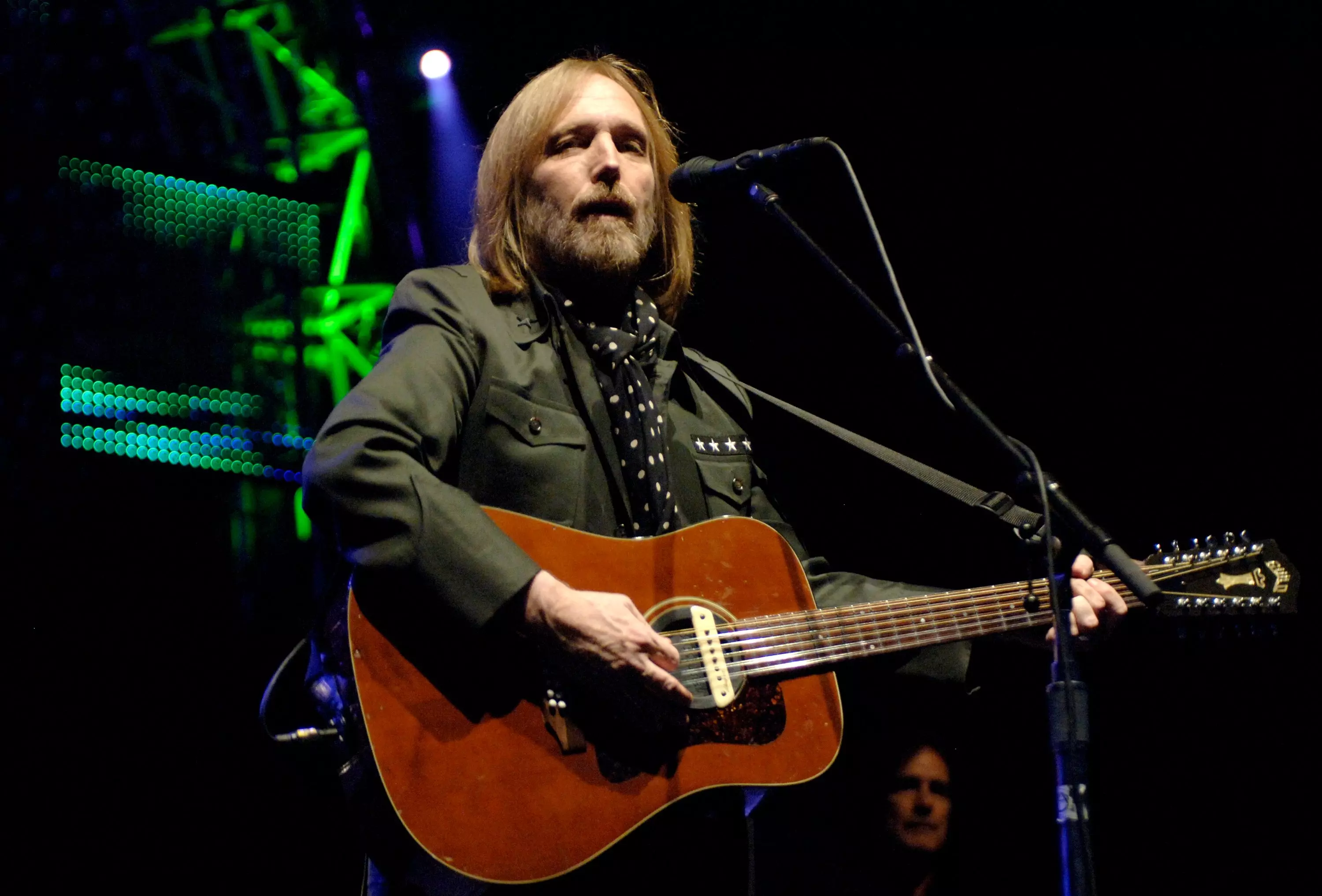
How 'Petty Country: A Country Music Celebration' Makes Tom Petty A Posthumous Crossover Sensation

Vince Gill Reveals Where He Keeps His GRAMMYs
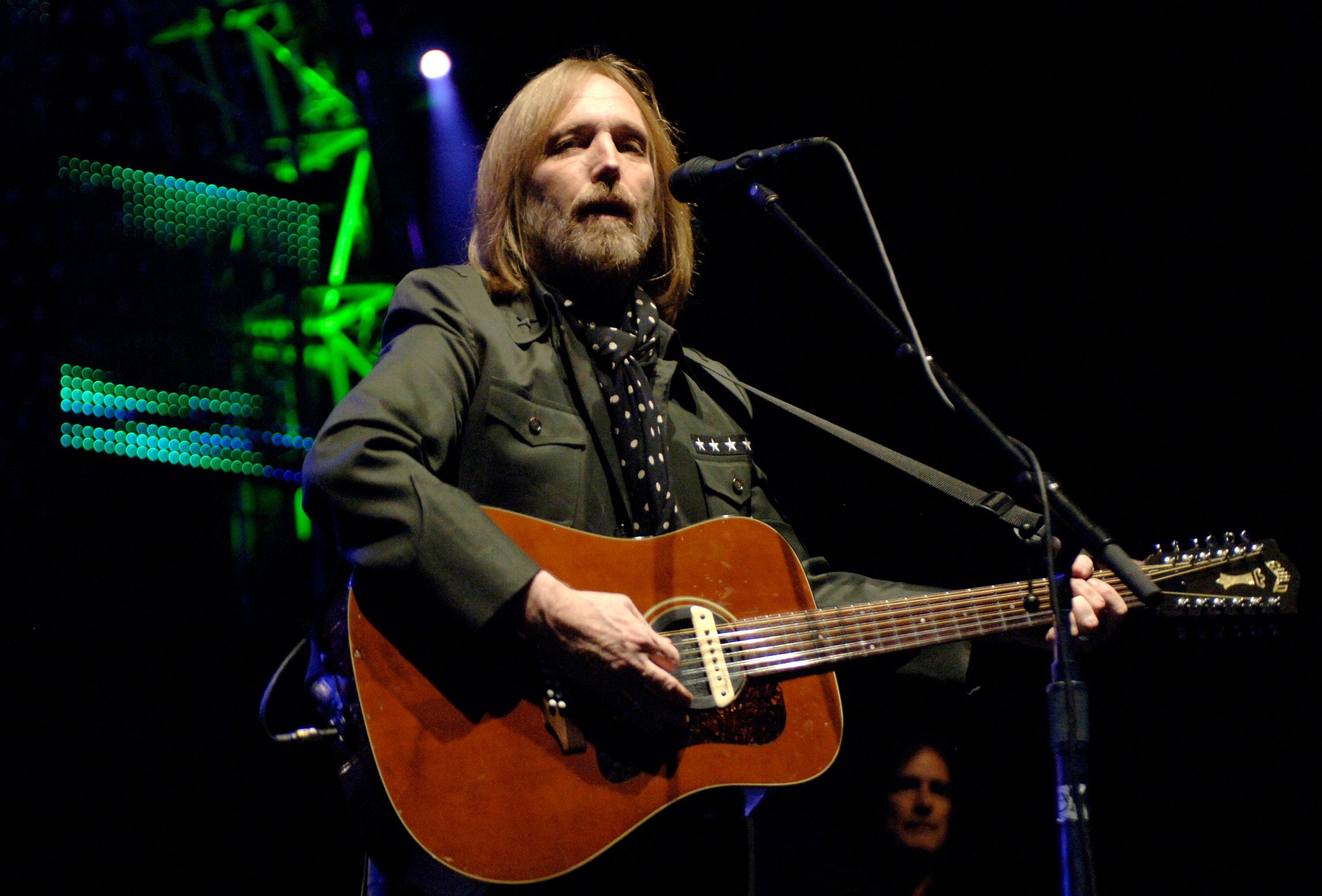
Photo: Tim Mosenfelder/Getty Images
feature
How 'Petty Country: A Country Music Celebration' Makes Tom Petty A Posthumous Crossover Sensation
On 'Petty Country,' Nashville luminaries from Willie Nelson to Dolly Parton and Luke Combs make Tom Petty’s simple, profound, and earthy songs their own — to tremendous results.
If Tom Petty and the Heartbreakers landed in 2024, how would we define them? For fans of the beloved heartland rockers and their very missed leader, it's a compelling question.
"It's not active rock. It's not mainstream rock. It's not country. It would really fall in that Americana vein," says Scott Borchetta, the founder of Big Machine Label Group. "When you think about what his lyrics were and are about, it's really about the American condition."
To Borchetta, these extended to everything in Petty's universe — his principled public statements, his man-of-the-people crusades against the music industry. "He was an American rebel with a cause," Borchetta says. And when you fuse that attitude with big melodies, bigger choruses, and a grounded, earthy perspective — well, there's a lot for country fans to love.
That's what Coran Capshaw of Red Light Management bet on when he posited the idea of Petty Country: A Country Music Celebration of Tom Petty, a tribute album released June 21. Featuring leading lights like Dolly Parton ("Southern Accents"), Willie and Lukas Nelson ("Angel Dream (No. 2)," Luke Combs ("Runnin' Down a Dream"), Dierks Bentley ("American Girl,") Wynonna and Lainey Wilson ("Refugee"), and other country luminaries covering Tom Petty classics, Petty Country is a seamless union of musical worlds.
Which makes perfect sense: on a core level, Petty, and his band of brothers, were absolutely steeped in country — after all, they grew up in the South — Gainesville, Florida.
"Tom loved all country music. He went pretty deep into the Carter Family, and "Will the Circle Be Unbroken?" and the folk, Americana heart of it," says Petty's daughter, Adria, who helps run his estate. "Hank Williams, and even Ernest Tubb and Patsy Cline… as a songwriter, I think a lot of that real original music influenced him enormously." (The Flying Burrito Brothers, and the Byrds' Gram Parsons-hijacked country phase, were also foundational.)
A key architect of Petty Country was the man's longtime producer, George Drakoulias. "He's worked with Dad for a hundred years since [1994's] Wildflowers, and he has super exquisite taste," Adria says.
In reaching out to prospective contributors, he and fellow music supervisor Randall Poster started at the top: none other than Willie Nelson and Dolly Parton. "Having Willie and Dolly made people stand up and pay attention," Dreakoulias told Rolling Stone, and the Nashville floodgates were opened: Thomas Rhett ("Wildflowers"), Brothers Osborne ("I Won't Back Down"), Lady A ("Stop Draggin' My Heart Around"), and so many others.
Each artist gave Petty's work a distinctive, personal spin. Luke Combs jets down the highway of "Runnin' Down the Dream" like he was born to ride. Along with Yo-Yo Ma and founding Heartbreakers keyboardist Benmont Tench, Rhiannon Giddens scoops out the electronics and plumbs the droning, haunting essence of "Don't Come Around Here No More."
And where a lesser tribute album would have lacquered over the songs with homogenous Nashville production, Petty Country is the opposite.
"I'm not a fan of having a singular producer on records like this. I want each one of them to be their own little crown jewel," Borchetta says. "That's going to give us a better opportunity for them to make the record in their own image."
This could mean a take that hews to the original, or casts an entirely new light on it. "Dierks called up and said, 'Hey, do you think we would be all right doing a little bit more of a bluegrass feel to it?' I was like, 'Absolutely. If you hear it, go get it.'"
"It had the diversity that the Petty women like on the records," Adria says, elaborating that they wanted women and people of color on the roster. "We like to see those tributes to Tom reflect his values; he was always very pro-woman, which is why he has such outspoken women [laughs] in his wake."
Two of Petty Country's unquestionable highlights are by women. Margo Price chose "Ways to Be Wicked," a cut so deep that even the hardcore Petty faithful might not know it; the Let Me Up (I've Had Enough) outtake was buried on disc six of the 1995 boxed set Playback.
"Man, it's just one of those songs that gets in your veins," Price says. "He really knew how to twist the knife — that chorus, 'There's so many ways to be wicked, but you don't know one little thing about love.'" Founding Heartbreakers guitarist Mike Campbell features on the dark, driving banger.
And all interviewed for this article are agog over Dolly Parton's commanding take on "Southern Accents" — the title track of the band's lumpy, complicated, vulnerable 1985 album of the same name. "It's just revelatory… it brings me to my knees," Adria says. "It's just a phenomenal version I know my dad would've absolutely loved."
"It's one of Dolly's best vocals ever, and it's hair-raising," Borchetta says. "You could tell she really felt that track, and what the song was about."
Adria is filled with profuse gratitude for the artists preserving and carrying her dad's legacy.
"I'm really touched that these musicians showed up for my dad," she says. "A lot of people don't want to show up for anything that's not making money for them, or in service to their career, and we really appreciate it… I owe great debt to all of these artists and their managers for making the time to think about our old man like that."
Indeed, in Nashville and beyond, we've all been thinking about her old man, especially since his untimely passing in 2017. We'll never forget him — and will strum and sing these simple, heartfelt, and profound songs for years to come.
Let Your Heart Be Your Guide: Adria Petty, Mike Campbell & More On The Enduring Significance Of Tom Petty's Wildflowers
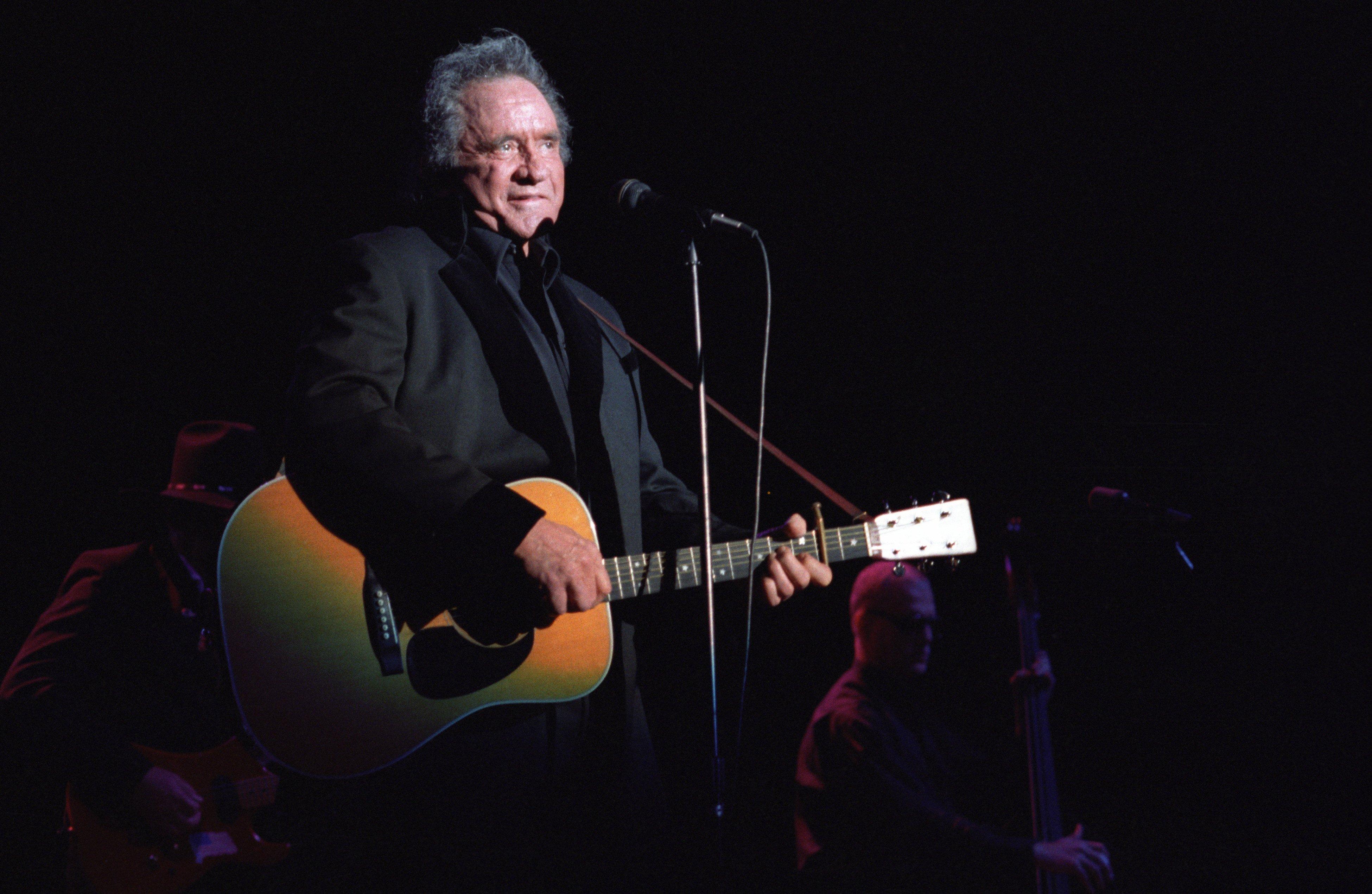
Photo: Jim Steinfeldt/Michael Ochs Archives/Getty Images
news
'Songwriter' Highlights Johnny Cash's Mighty Pen: Inside This Seldom-Heralded Aspect Of The Man In Black
A new archival release drawn from 1993 sessions, 'Songwriter' illuminates Cash's skillful way with a lyric and melody — apart from simply being a great interpreter.
When you think of Johnny Cash, what comes to mind? Perhaps it's the penitentiary serenader. The Rubin-retrieved elder statesman. The Man in Black who walked the line and fell into a burning ring of fire. Maybe even Homer's chili-pepper-hallucinated coyote on "The Simpsons." But what about Cash, the songwriter?
Certain hits of his — like that aforementioned mariachi-powered classic — were by outside writers. And an inarguable component of Cash's genius is how he could take a song by Merle Travis ("Dark as a Dungeon"), Bob Dylan ("It Ain't Me Babe") or Nine Inch Nails ("Hurt") and utterly inhabit it.
But simply a master interpreter he wasn't. From "Cry! Cry! Cry!" to "I Walked the Line" and "Folsom Prison Blues," Cash had a hand, in part or in whole, in writing some of his most monumental tracks. So why didn't this descriptor ever quite stick?
"Bob Dylan said he is one of the greatest writers of the 20th century. He didn't say 'songwriters'; he said 'poet laureate,'" John Carter Cash — the only child of Johnny and June Carter Cash — tells GRAMMY.com. "So, I think his contemporaries knew it, but not as many as the fans, because I think his image overshadows all that somehow."
With this in mind, John Carter helped bring a posthumous Cash project to life — one that celebrates his sometimes undersung facility in this department.
Welcome to Songwriter: An 11-track collection of previously unheard Cash originals from across the decades, like "Have You Ever Been to Little Rock," "I Love You Tonite," and "Like a Soldier." The album was recorded in 1993 at LSI Studios in Nashville, as songwriting demos.
John Carter always knew about the existence of these sessions — after all, he played guitar on them.
"Dad didn't really have the intention of releasing these as a body of work at that time, because he was sort of changing his mentality about his records," he explains. "I think he wanted to look at his old albums that had been successful — and this was right before he did the American Recordings stuff."
Read more: 10 Ways Johnny Cash Revived His Career With American Recordings
Despite existing in this liminal zone, the songs Cash tracked are superb. Opener "Hello Out There," which John Carter believes to be about the Voyager launches, is essentially Cash's "Space Oddity" — a cosmic statement from a typically boots-on-the-ground artist.
The following track, "Spotlight," finds the Man in Black singing to, well, the spotlight: "Don't let it show/ That my heart went with her when I let her go/ Don't let anybody see deep within the soul of me/ Or they will see that something there is not quite right." The highlights just roll on, from the entrancing psychedelia of "Drive On" to the spare, poignant "She Sang Sweet Baby James."
Wisely, John Carter and co-producer David "Fergie" Ferguson, who'd worked with Cash since the 1980s, stripped away some dated production, and centered Cash’s hypnotic performances. They also brought in musicians who'd worked with Cash: guitarist Marty Stuart, now-departed bassist Dave Roe and drummer Pete Abbott.
In the original session, Waylon Jennings sang on "I Love You Tonite" and "Like a Soldier"; in the 2020s, Vince Gill added vocals to "Poor Valley Girl," and the Black Keys' Dan Auerbach added some simmering, bluesy guitar to "Spotlight."
When Ferguson heard the material for the first time, he was floored — by his voice, for one thing. "And what a good job they did recording it," he tells GRAMMY.com. "It could have just as easily been screwed up — been distorted, or had a big hum in it. Nowadays, you can take care of a lot of that, but a lot of it can't."
Then, there are the songs; Ferguson calls "Spotlight" "poetic in a lot of ways," and singles out "She Sang Sweet Baby James" as "kind of folky Johnny, storytelling Johnny. That was one of the first I heard where I said, Man, that's so good. I've never heard that. I was really surprised."
He's excited for the fan reaction to "Hello Out There." "When he does those echoes — 'Calling, calling, calling,' those are not digital echoes," he stresses of that recurrent hook. "He wanted them there. That ain't something we chose to do, but I really like those."
Ferguson also hails its lyrical timeliness: "It's kind of him singing about the world going to s—. He had a naturalist part of him. He loved Mother Earth."
John Carter is thrilled about the dynamism, and variety, of the material on Songwriter. "There are silly, fun songs. Ther are songs of faith, there are songs of his love — specifically for my mother," he says. "There's songs of loss and sadness. There's songs of mystery and eternal yearning that happen to also be gospel songs.
"It's a bright time in my memory of my father, even though he did have his ups and downs through his time period," John Carter concludes. "I hear his personality when I look through these songs. I hear his depth that he was a deep thinker and that he believed what he believed, and that's what it was. I hear the mystery that he perceived."
But one mystery should be cleared up right now: Johnny Cash was a great songwriter, on top of everything else he's famous for — and here are 11 colorful, memorable points of proof.
How Petty Country: A Country Music Celebration Makes Tom Petty A Posthumous Crossover Sensation
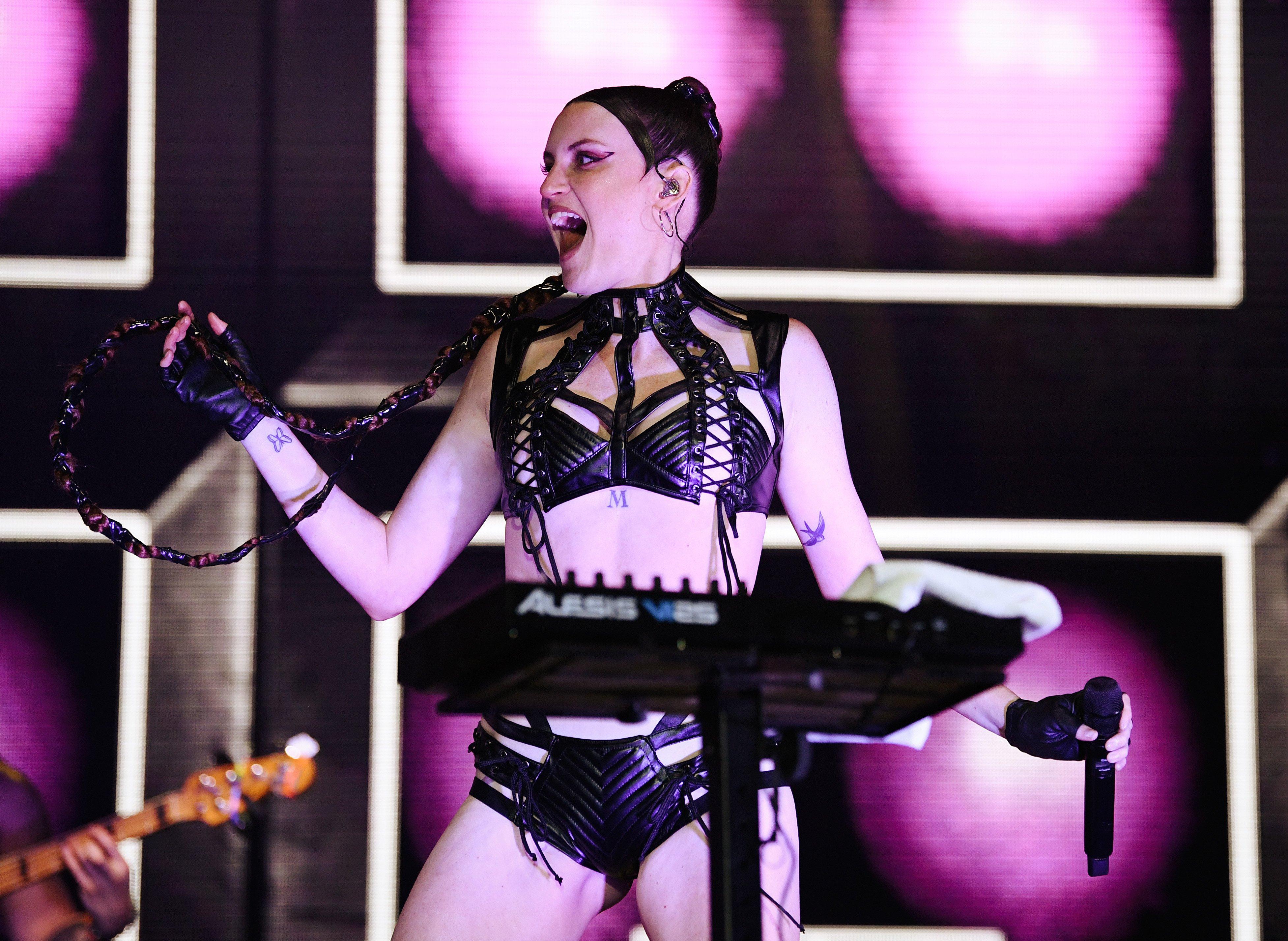
Photo: Chelsea Guglielmino
list
5 LGBTQIA+ Record Labels To Check Out: Get Better Records, So Fierce! And Others
During Pride Month and beyond, LGBTQIA+ owned and operated record labels are diligently working to provide queer artists a platform while providing more visibility for their communities.
Music is often a unifier — something that ties us together, allowing us to bond over our shared experiences. This is especially true among LGBTQIA+ communities. Whether you’re hearing MUNA’s pop songs crackle over speakers in a record store or finding ethereal deep-cut Ethel Cain demos on SoundCloud playlists, the queer community find an inevitable connection in the artists they seek out.
For decades, queer artists have cultivated hidden scenes in rave, techno and dance music. Today, a new generation of LGBTQIA+ artists are shaping contemporary pop, from Reneé Rapp and Towa Bird, to Chappell Roan and RYL0. However, we cannot acknowledge this mainstream resurgence of queer talent without reflecting on the limitations which hold back the wider music industry from becoming more accommodating to LGBTQIA+ artists.
A 2024 study from Queer Capita in partnership with Billboard revealed that 94 percent of music business participants feel that the industry fails to provide adequate resources or representation for the queer community. However, there's a severe lack of data on the number and scope of queer-specific record labels (those that are LGBTQIA+ owned, run or whose rosters reflect that demographic) — a shocking shortfall considering how queerness shapes the music industry financially. A 2022 "The Power of LGBTQ+ Music" report by Luminate revealed that, queer fans spend an average of 20 percent more on merch and, generally, spend $72 more on music than the general public.
Read more: 15 LGBTQIA+ Artists Performing At 2024 Summer Festivals
Queer music is profitable and shaping listening trends. Although LGBTQIA+ acts are eagerly supported, — and major labels seem to be taking steps to increase queer representation on a corporate level and on their rosters — the wider industry must continue to support the indies and queer imprint labels that are fighting to survive.
These queer indie record labels are not only highlighting LGBTQIA+ artists and creating accessible, accommodating spaces, but they're often doubling down on the importance of visibility. As an artist or employee, it wouldn’t hurt if your boss (label manager, record executive, press assistant, etc) was queer too, right? This integration and inclusivity is essential when building equitable infrastructure in music.
So, now with Pride Month upon us, there’s been no better time to reflect on the vital resource that LGBTQIA+ labels provide and the ways they encourage our industry to do and be better. These labels are much more than champions of queer talent; they’re signifiers of independent ethos and resilience that keeps music communities thriving.
From the late-night voguing parties in Shanghai that inspired Medusa Records to the against-the-grain roster of Saddest Factory Records, here are five global LGBTQIA+ record labels showcasing the necessity and irreplaceable talent of queer creatives.
Get Better Records
Location: Philadelphia, Pennsylvania
Artists to know: Alice Bag Band, La Dispute, Victoria Park, ZORA
Get Better Records has been around since 2009 and, over its 15 years, has become one of the most notable queer and trans-owned labels. Get Better was formed by Control Top drummer Alex Lichtenauer and their friend Nick King, though the label is now solely run by Lichtenauer. Get Better's roster platforms punk, alternative, experimental and hardcore acts.
Whether you’re looking for the intimate sound of Suzie True, the queer hardcore attitude of Baltimore newcomers No Doubt or want to experience the reverie of how Bacchae are twisting underground DC punk into their own boot-stomping beat, Get Better Records has become a hotspot for innovative acts bringing their distinct style to the music industry.
A proudly self-described “queer and trans owned” record label with a simple motto — inspiring everyone to practice and play. Through their committed gritty spirit, Get Better Records is summative of what we hope to see for all LGBTQIA+ artists: unconditional acceptance of their experiences and art.
Saddest Factory Records
Location: Los Angeles, California
Artists to know: MUNA, Charlie Hickey, Claud, Sloppy Jane
While technically an imprint of Dead Oceans (the label Phoebe Bridgers is signed to), the arrival of her Saddest Factory Records was a welcomed one. Founded in 2020, Saddest Factory Records emerged off the back of Bridgers’ ongoing success as a cult fan favorite and served as an important reminder — the best creative decisions for LGBTQIA+ artists do, in fact, come from our own community.
Saddest Factor's roster features a queer-charged collection of artists who deserve more eyes and ears. If you’ve not already here for queer fandom faves Claud, MUNA, or Sloppy Jane, you’ve got some work to do this Pride Month!
So Fierce
Location: Toronto, Canada
Artists to know: Oceane Aqua-Black, Gisèle Lullaby, Jay Light
Founded by musician Velvet Code during the pandemic in 2020, So Fierce wears its pride on its sleeve — by name and artist roster. This inclusive music company pulls together a diverse mix of LGBTQIA+ talent, from drag queens to pop singers, and proves there’s space for all types of queer representation.
With over 20 years of experience producing for big names like Venus, Icesis Couture and Lady Gaga, Velvet Code has cultivated a space that gives LGBTQIA+ artists a platform to belong. Their roster includes names like Icesis Couture, season 2 winner of Canada’s "RuPaul’s Drag Race," and Miami-based singer/songwriter Deity Jane.
Medusa Records
Location: Shanghai, China
Artists to know: Enema Stone, Michael Cignarale
Based in Shanghai city, a monthly queer club night transformed from a queer-friendly communal space to something much bigger. These unforgettable eccentric Medusa parties hosted – filled with voguing, queens and pounding psytrance music – became pivotal underground expressions of Shanghai’s LGBTQIA+ nightlife.
As Medusa Records, founders Michael Cignarale and Sam “Mau Mau" wanted to emulate the ecstasy of queer, unapologetic existence. "The label will channel Medusa’s sweaty midnight moments into a distinctive voice, embodied by musical and multimedia collaborations,” they said in a press release. Through the label, they hoped "to connect the emerging Chinese queer community with a global audience."
Medusa Records works with local and international DJs, VJs, producers, vocalists, visual artists and others. Their roster features the wonderfully queer, camp and colorful stylings of resident drag performer and musician Enema Stone, as well as DJ Michael Cignarale.
Outside their label, Medusa continues to give back during their sweaty, glitter-doused parties, where they host guest DJs and performers such as the Carry Nation, Chris Cruse, Octo Octa, Eris Drew, Nick Monaco, Chrissy, Jeffery Sfire, and Boris.
Whether you’re attending an IRL club night or cruising their online presence, Medusa Records know how to keep the beat going – and you’ll feel like you’re caught up in a never-ending party.
Boudicca
Location: London, United Kingdom
Artists to know: Samantha Togni, Wallis
If music labels and party hybrids are your thing, Boudicca may be your next favorite destination.
Starting out as a queer club night in 2019, Boudicca was founded by producer and DJ Samantha Togni and quickly became a hot spot for queer techno lovers. Now, the London-based party platform and record label is all about hitting high BPMs, championing hedonistic electronica, and giving space to under-the-radar non-binary, womxn and trans musicians.
Regularly hosting or collaborating in queer club nights and DJ sets, Boudicca’s roster pushes electronica to its limits. The label has released a series of exhilarating crossover compilations: Pure Bones, Dreams That I Can't Quite Remember, and Dark As It Gets, each of which features game-changing acts such as Rotterdam-based duo Animistic Beliefs — who blend global club music, techno and IDM — to Peachlyfe, an incredible "hydra-sonic" non-binary musician.
Listen To GRAMMY.com's 2024 Pride Month Playlist Of Rising LGBTQIA+ Artists
Celebrate Pride Month

5 LGBTQIA+ Record Labels To Check Out: Get Better Records, So Fierce! And Others
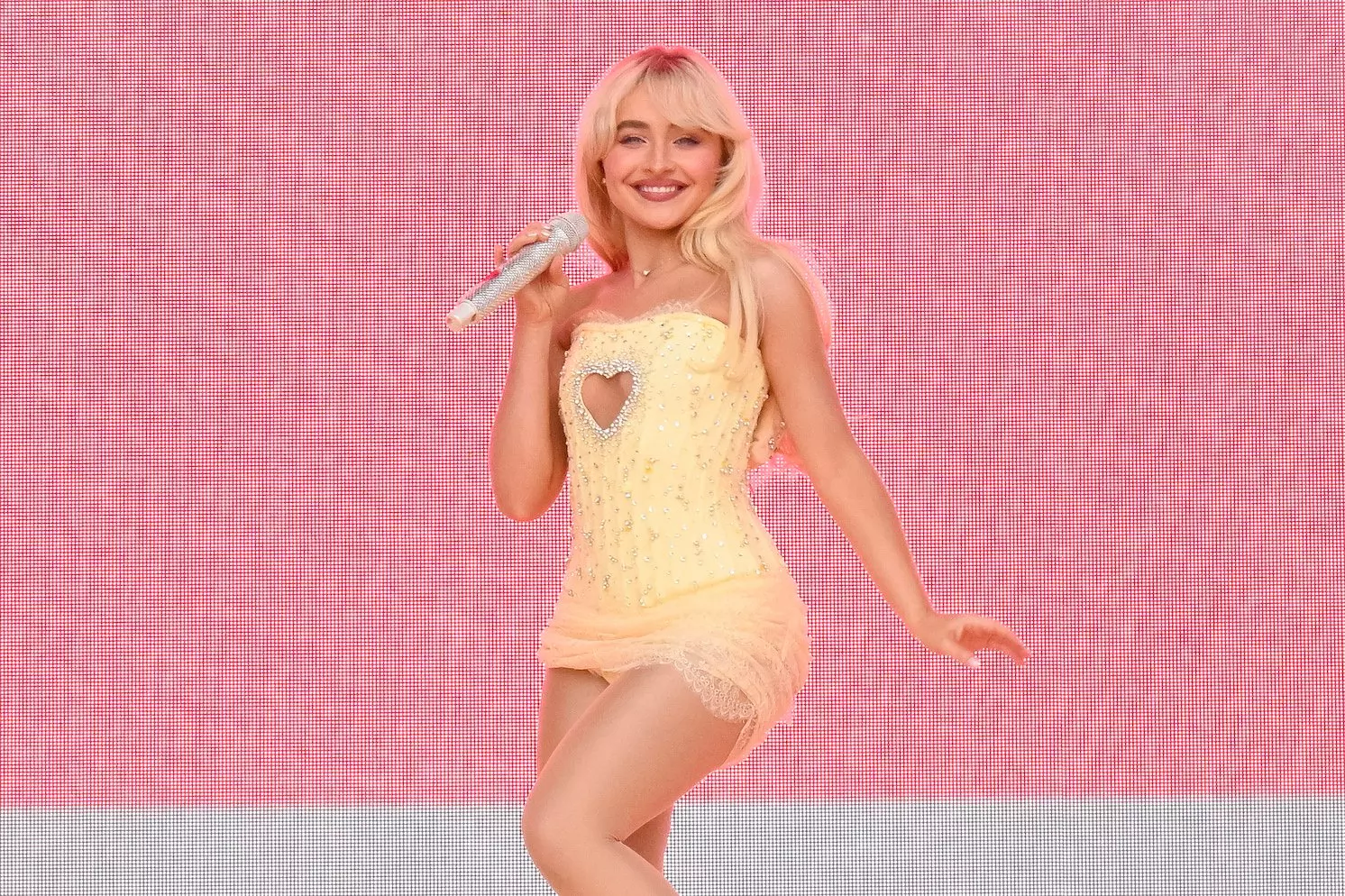
9 New Pride Anthems For 2024: Sabrina Carpenter's "Espresso," Chappell Roan's "Casual" & More
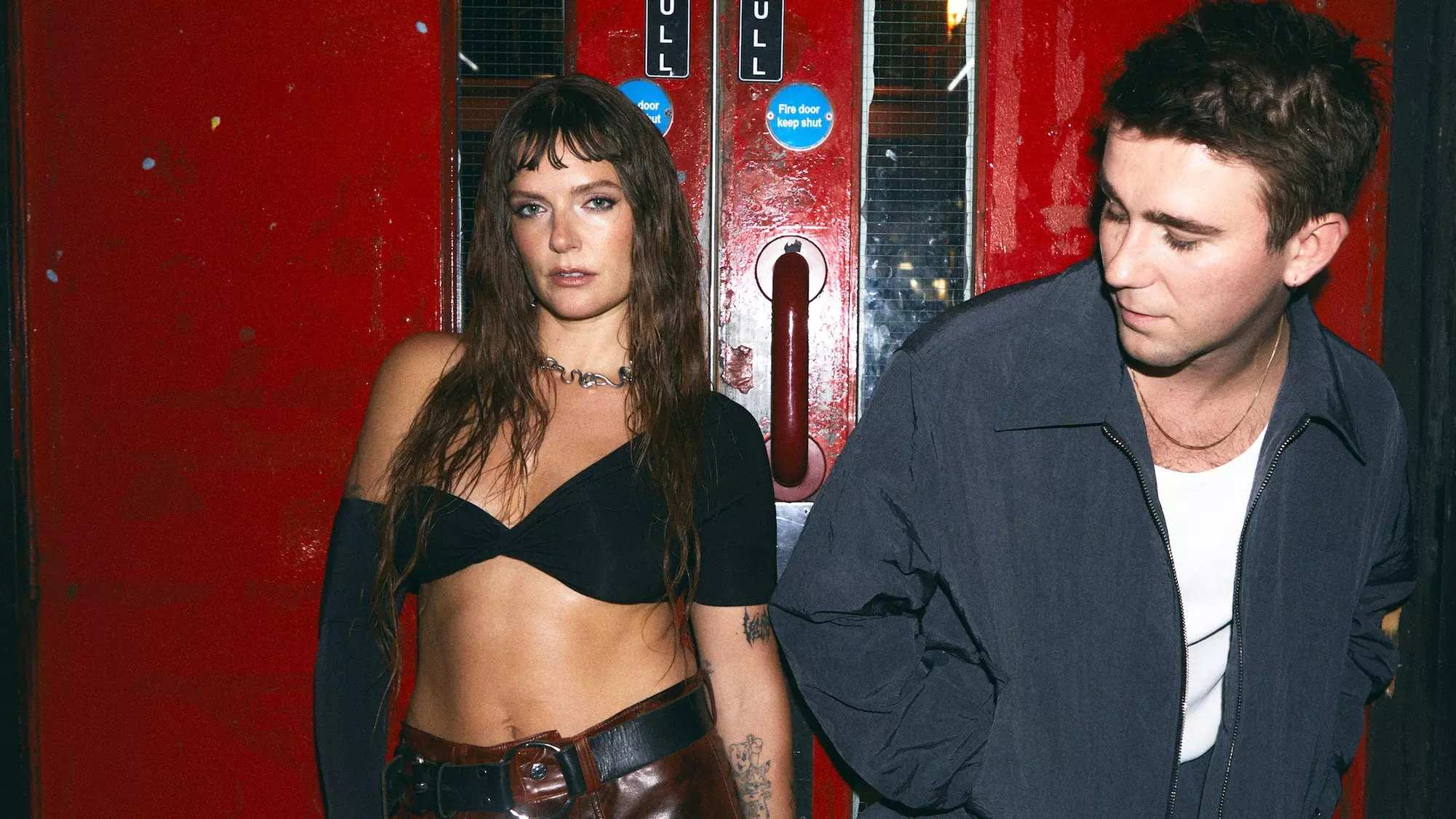
Tove Lo & SG Lewis Crafted Sweaty New EP 'HEAT' In Celebration Of Their Queer Fans
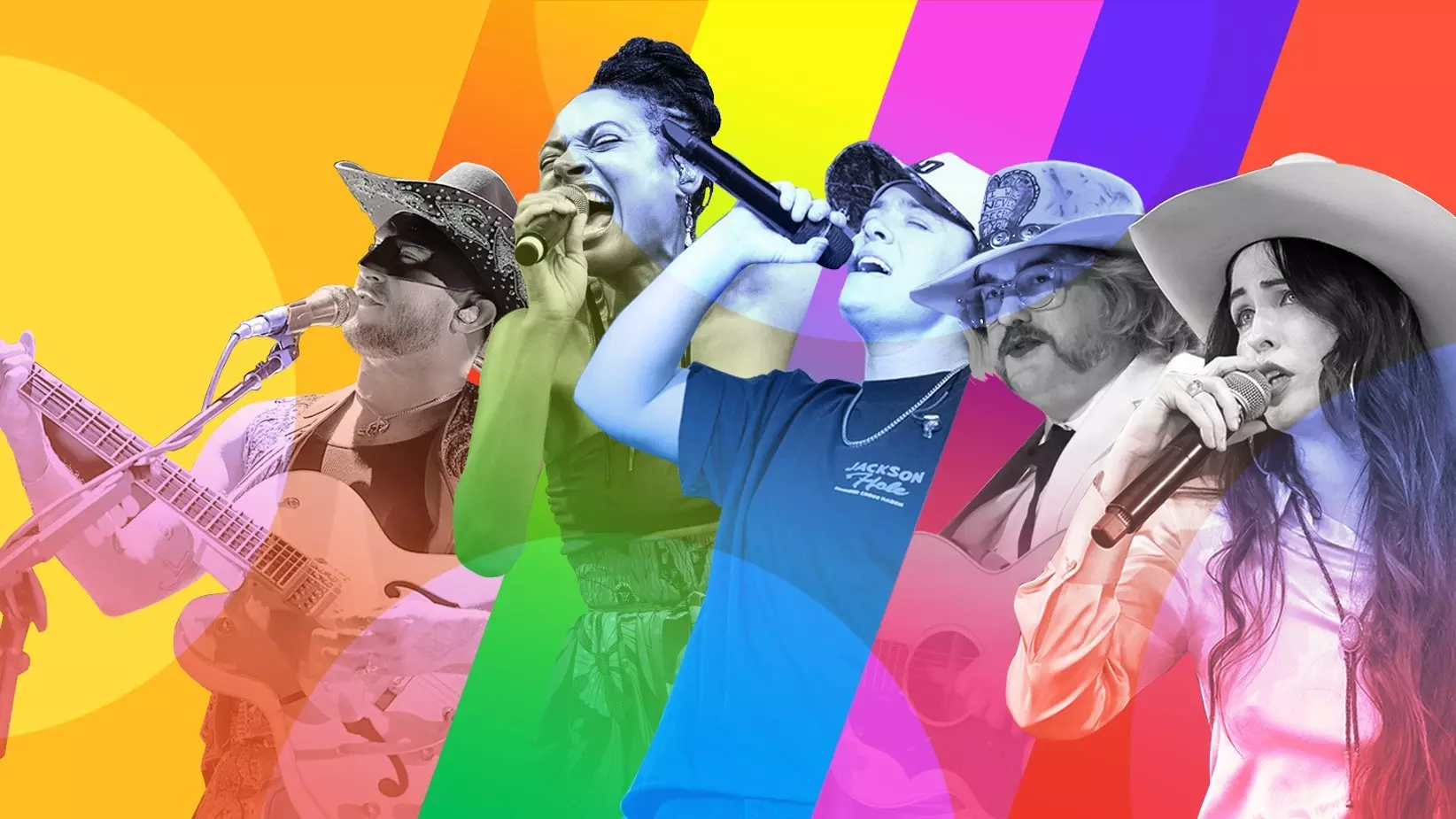
How Queer Country Artists Are Creating Space For Inclusive Stories In The Genre
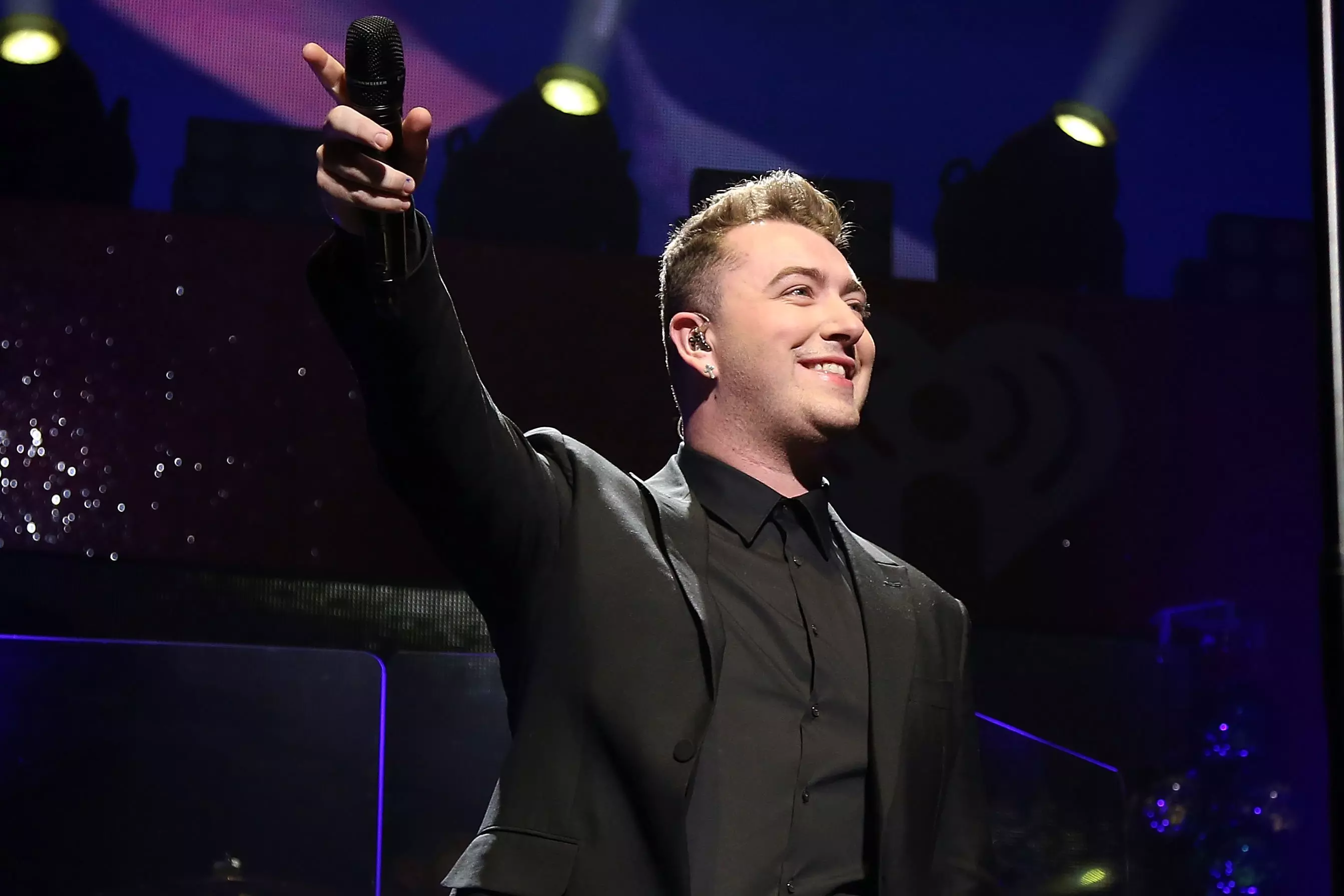
How Sam Smith's 'In The Lonely Hour' Became An LGBTQIA+ Trailblazer
